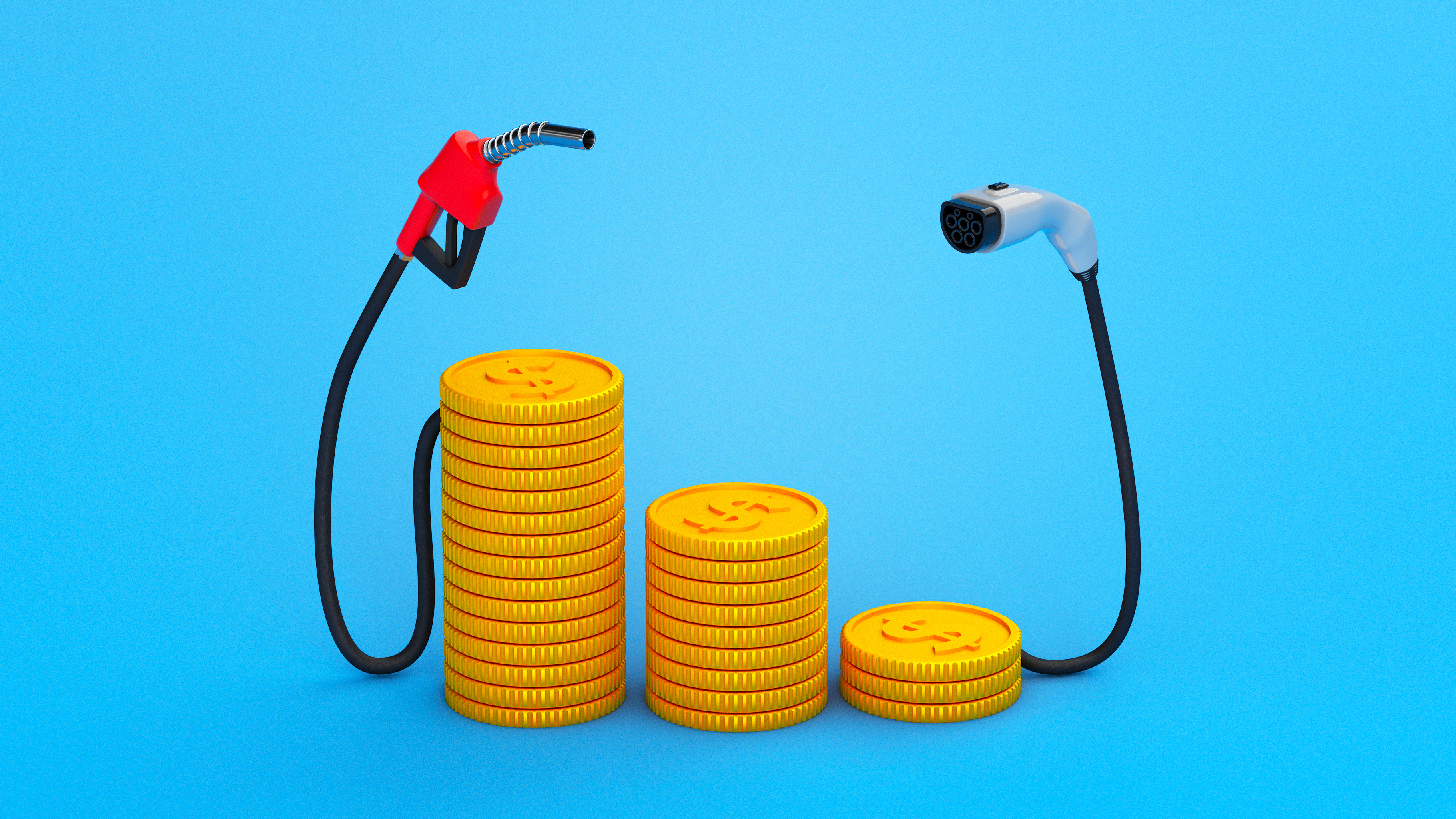A guide to investing in gold
What you should know before adding the precious metal to your portfolio


A free daily email with the biggest news stories of the day – and the best features from TheWeek.com
You are now subscribed
Your newsletter sign-up was successful

With market uncertainty and the threat of a recession hanging over our heads, some investors might be wondering if now is the time to add gold to their portfolios. After all, gold has garnered a reputation as a hedge against inflation and a safe haven in a tumultuous economic environment.
Here's a look at whether gold actually lives up to the hype, what questions you should ask before adding the metal to your portfolio, and the options you have should you decide buying gold is right for you.
Is gold a good investment?
Especially in times of market turmoil and rising inflation, gold is often held up as, well, the gold standard. But does it actually deserve that reputation?
The Week
Escape your echo chamber. Get the facts behind the news, plus analysis from multiple perspectives.

Sign up for The Week's Free Newsletters
From our morning news briefing to a weekly Good News Newsletter, get the best of The Week delivered directly to your inbox.
From our morning news briefing to a weekly Good News Newsletter, get the best of The Week delivered directly to your inbox.
Experts have mixed opinions. While gold "is a great hedge against 'black swans' — unexpected and catastrophic financial events," it doesn't hold up as well during the good times, when it "simply can't compete and its price tends to languish," Kiplinger says. Nerdwallet backs up this assertion, noting that, in "the past 30 years, the Dow Jones Industrial Average — a good representation of the overall stock market — has significantly outperformed gold."
However, while the metal might not produce much in terms of income, it can offer diversification, as "its price tends to move in the opposite direction of stock prices — and often against bond prices, too," Kiplinger writes. Further, it can provide what Tony Roth, head of wealth management strategies at UBS, describes as "psychological value." Indeed, "nervous investors might want to hold anywhere from 5 percent to 20 percent of their portfolios in gold for 'downside protection,'" Kiplinger summarizes, per Roth.
What are the different ways you can invest in gold?
- Gold stocks: One way investors can purchase gold is by buying stock in a gold-mining company. This allows you to select which companies you invest in. And while you won't physically own gold, you'll be able to sell a stock at any time. However, mining stocks "are affected by many factors other than the metal's price, including stock market conditions and the company's management," which "can make individual stock prices considerably more volatile than the metal itself — and the metal is plenty volatile on its own," Kiplinger notes.
- Gold funds: Another option is investing in gold exchange-traded funds (ETFs) or mutual funds. Funds provide "more liquidity than owning physical gold and offer a level of diversification that a single stock does not," Nerdwallet writes. Still, investors will want to watch out for the management fees that some funds charge.
- Gold futures: With gold futures, investors enter into a legal contract to either buy or sell a specified amount of gold at some point in the future. In this way, investors can potentially profit from changes in the price of gold. The upsides are greater liquidity than physical gold and no management fees like the ones funds might charge (though trade fees may apply). However, "trading futures contracts involves a lot of risk and isn't a suitable investment option for an inexperienced investor," Nerdwallet cautions. Further, there is the potential to lose money beyond the amount you invested.
- Physical gold: And yes, it is also possible to purchase actual, physical gold — think gold bars, gold coins, or even gold jewelry. But with this method of investing come the associated challenges of storage and insurance, not to mention buying and selling.
When you apply via our links we may earn an affiliate commission.
Does gold make sense for your portfolio?
As you can see, investing in gold and the different methods of doing so each have their pros and cons. To help determine if gold is something you'd like to add to your portfolio, here are some questions to ask yourself:
A free daily email with the biggest news stories of the day – and the best features from TheWeek.com
- Are you hoping to minimize risk and weather economic uncertainty? If you're worried about risk during economic uncertainty, gold might make sense as an investment. Indeed, while the value of stocks "can fluctuate wildly from day to day, gold's value remains largely stable, making it a great way to preserve value in your portfolio," explains CBS News. Further, "[i]n six of the last eight biggest stock market crashes in the last 40 years, gold prices went up."
- Are you worried about inflation? Gold is often held up as a solid hedge against inflation, and it's true that, generally speaking, "the price of gold doesn't track inflation," Kiplinger says. However, it's also "true that during periods of extraordinarily high inflation, gold's price may soar." A better bet for a "guaranteed inflation hedge" is Treasury Inflation-Protected Securities.
- Are you looking for higher returns? If high returns are what you're after, gold likely isn't the investment to turn to. Kiplinger says that "despite some illustrious returns in the 1970s and the first decade of the 21st century, gold has generated disappointing long-term returns compared to stocks." And though stocks might be higher risk, "as part of a balanced portfolio, they can help boost your balance in the long run," adds CBS News.
Are you wanting to receive dividends?
Unlike stocks, which can allow you to earn regular dividends, you likely won't get any money out of gold until you go to sell it. An exception here might be dividend-earning gold stocks or ETFs, but "[i]f you want an investment that provides an income stream, stocks are likely the better choice," says CBS News.
Becca Stanek has worked as an editor and writer in the personal finance space since 2017. She has previously served as the managing editor for investing and savings content at LendingTree, an editor at SmartAsset, and a staff writer for The Week. This article is in part based on information first published on The Week's sister site, Kiplinger.com.
New Tax Rules for 2023: Download your free issue of The Kiplinger Tax Letter today. No information is required from you.
Becca Stanek has worked as an editor and writer in the personal finance space since 2017. She previously served as a deputy editor and later a managing editor overseeing investing and savings content at LendingTree and as an editor at the financial startup SmartAsset, where she focused on retirement- and financial-adviser-related content. Before that, Becca was a staff writer at The Week, primarily contributing to Speed Reads.
-
 Local elections 2026: where are they and who is expected to win?
Local elections 2026: where are they and who is expected to win?The Explainer Labour is braced for heavy losses and U-turn on postponing some council elections hasn’t helped the party’s prospects
-
 6 of the world’s most accessible destinations
6 of the world’s most accessible destinationsThe Week Recommends Experience all of Berlin, Singapore and Sydney
-
 How the FCC’s ‘equal time’ rule works
How the FCC’s ‘equal time’ rule worksIn the Spotlight The law is at the heart of the Colbert-CBS conflict
-
 How your household budget could look in 2026
How your household budget could look in 2026The Explainer The government is trying to balance the nation’s books but energy bills and the cost of food could impact your finances
-
 What is a bubble? Understanding the financial term.
What is a bubble? Understanding the financial term.the explainer An AI bubble burst could be looming
-
 The FIRE movement catches on as people want to retire early
The FIRE movement catches on as people want to retire earlyIn the spotlight Many are taking steps to leave the workforce sooner than usual
-
 Who wants to be a millionaire? The dark side of lottery wins
Who wants to be a millionaire? The dark side of lottery winsIn The Spotlight Is hitting the jackpot a dream come true or actually a nightmare?
-
 How can you find a financial adviser you trust?
How can you find a financial adviser you trust?the explainer Four ways to detect professionals who will act in your best interest
-
 What should you consider when choosing a financial adviser?
What should you consider when choosing a financial adviser?The Explainer The right person can be a big help with financial planning, investing, taxes and more
-
 What Biden's IRA means for EV tax credits: 2024 updates
What Biden's IRA means for EV tax credits: 2024 updatesThe Explainer Which cars are eligible and how much money can owners save?
-
 How to ensure you don't outlive your retirement savings
How to ensure you don't outlive your retirement savingsThe Explainer Your golden years should be enjoyed. Don't let finances get in the way.
